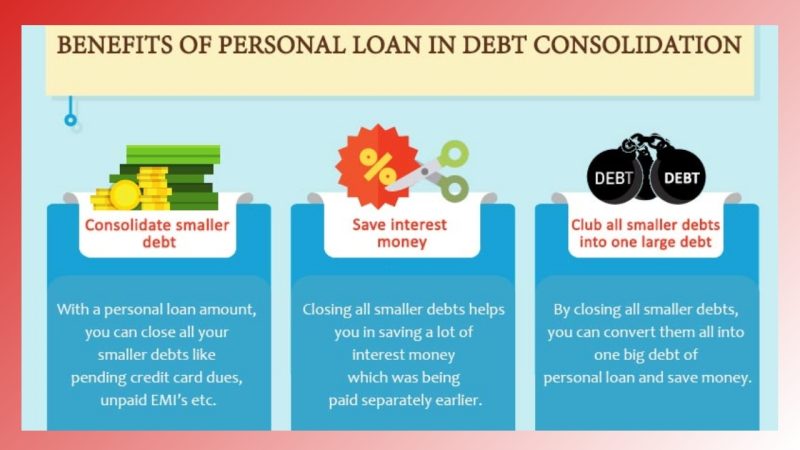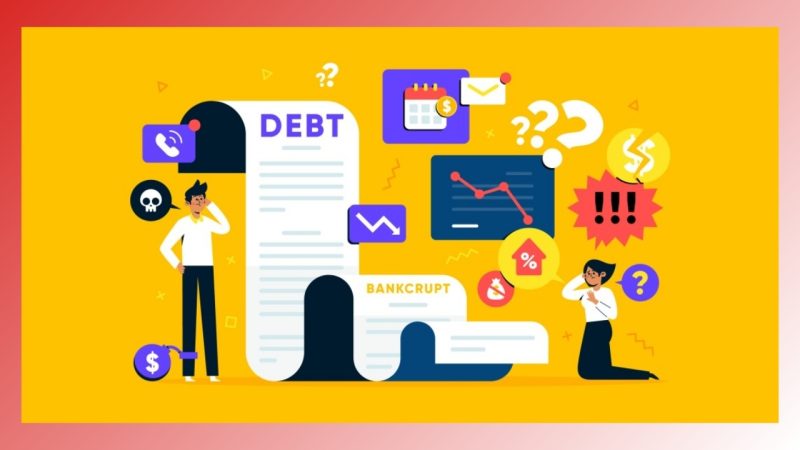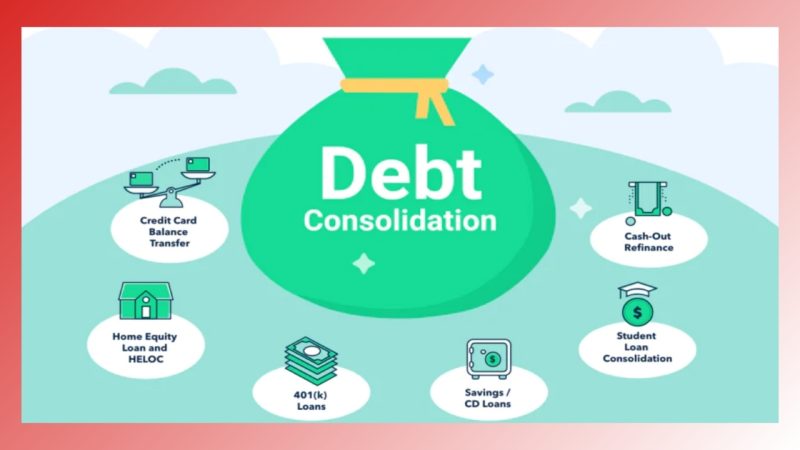Definition of debt consolidation: Debt consolidation, a term gaining popularity in financial circles, refers to the process of combining multiple debts into a single, manageable payment. This strategy aims to simplify financial obligations and potentially reduce the overall interest burden. But, is debt consolidation the right choice for you? Let’s explore!
Benefits of Debt Consolidation
Lower Interest Rates and Monthly Payments
One of the primary advantages of debt consolidation is the potential for lower interest rates and monthly payments. By consolidating high-interest debts into a single loan, individuals may secure a more favorable interest rate, leading to reduced overall costs.
Simplified Finances
Managing multiple debts with varying due dates and interest rates can be overwhelming. Debt consolidation simplifies finances by consolidating everything into a single payment, making it easier to keep track of and plan for.
Improved Credit Score
Consistently making on-time payments through debt consolidation can positively impact your credit score. It reflects responsible financial behavior, which is crucial for future financial endeavors.

Types of Debt Consolidation
Debt Consolidation Loans
A popular choice, these loans are obtained to pay off existing debts, leaving only one loan with a fixed interest rate.
Balance Transfer Credit Cards
Transferring high-interest credit card balances to a card with a lower interest rate can be an effective debt consolidation method.
Home Equity Loans
Leveraging home equity to secure a loan for debt repayment is an option for homeowners with substantial equity.
Other options are also available.
Considerations Before Consolidating
Financial Assessment
Before consolidating your debt, conduct a thorough financial assessment to understand your overall debt, income, and expenses. It’s important to take your full situation under consideration.
Understanding Interest Rates
Be aware of the interest rates associated with consolidation to ensure it provides financial benefit.
Checking Credit Score
A good credit score enhances your chances of securing favorable consolidation terms. Better understand your credit score and what goes into it now.
Researching Lenders
Choosing a reputable lender is crucial. Research and compare options to find the best fit for your personal needs.
Step-by-Step Guide to Debt Consolidation
Assessing Total Debt
Determine the total debt amount to establish the scope of consolidation needed.
Choosing the Right Debt Consolidation Method
Select a method aligning with your financial situation, considering interest rates and terms.
Applying for the Consolidation Loan
Complete the application process, providing accurate financial information. You can apply for a debt consolidation loan at NCU right now!
Paying Off Existing Debts
Once and if you are approved, use the consolidation funds to pay off existing debts.
Staying Financially Disciplined
Maintain financial discipline to avoid accumulating new debts during and after consolidation. Living in northern Minnesota and the Cloquet, Moose Lake, and Floodwood areas calls for seasonal discipline.

Common Misconceptions
Debt Consolidation Harms Credit Score
While there may be a temporary dip, responsible consolidation often improves credit scores over time. Effects can vary.
Debt Consolidation Is Only for Large Debt Amounts
Debt consolidation is beneficial for various debt sizes, not just large amounts. Situations may differ.
Debt Consolidation Solves Underlying Financial Issues
Consolidation addresses immediate debt concerns but does not replace the need for sound financial habits.
What is Debt Consolidation and Is It Right for Me?
Evaluating Personal Financial Situation
Consider your financial goals, current debts, and ability to manage a consolidated payment.
Understanding Long-Term Commitments
Debt consolidation involves a commitment; assess your readiness for long-term financial responsibility.
Seeking Professional Advice
Consulting a financial advisor can provide personalized insights into your unique situation.

Frequently Asked Questions
How Does Debt Consolidation Affect Credit Score?
It may initially impact your credit score, but responsible repayment improves it over time.
Can I Consolidate Student Loans?
Yes, student loans can be consolidated through various programs or a direct consolidation loan. Some institutions may vary.
What Happens If I Miss a Payment After Consolidation?
Missing payments can harm your credit score and lead to financial penalties; stay vigilant and adhere to the payment schedule.
Is Debt Consolidation the Same as Debt Settlement?
No, consolidation combines debts into a single payment, while settlement negotiates to reduce the total debt amount.
Can I Consolidate Debts with Bad Credit?
While challenging, options like debt management plans or secured loans may be available with bad credit. Situations are different for many people and options are available.
Are There Alternatives to Debt Consolidation?
Yes, alternatives include debt settlement, debt management plans, and budgeting to pay off debts strategically.
Conclusion
Debt consolidation is a valuable tool when used wisely. By understanding its benefits, types, and considerations, individuals can make informed decisions tailored to their financial situations. Always remember, the key to successful debt consolidation lies in disciplined financial management and a commitment to long-term financial health.

